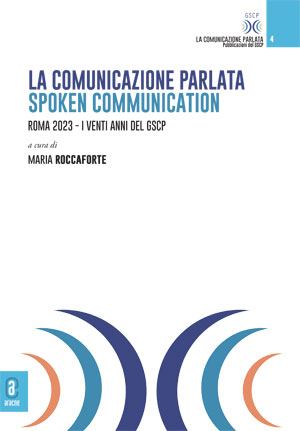DOI: 10.53136/979122181882622
Pages: 403-421
Publication date: July 2025
Publisher: Aracne
SSD:
L-FIL-LET/12 L-LIN/01 L-LIN/02
This study analyses the production of a sample of complaint acts produced in L2 Italian and native Italian. Complaints represent a type of speech act that is little explored in Italian, both from an interlinguistic and cross-linguistic perspective, although they exhibit a series of pragmatic indicators of undeniable interest. The prosodic realization, a relevant component that determines the pragmatic effectiveness of complaints, is also still underexplored in Italian. This becomes even more relevant from an acquisitional perspective, a domain in which prosodic features must be adequately modulated so that a threatening act like complaining does not significantly compromise the social relationship.
The research focuses on examining the relationship between the prosodic aspects that Italian learners and native speakers rely on during the production of complaints and the (socio)pragmatic strategies used to realise the act. To this end, a sample of complaints produced by Arabic and Spanish-speaking learners and a group of native speakers through oral role plays was analysed from a (socio)pragmatic and phonetic perspective.
Preliminary results show a varied picture. Learners, though with some differences between the two groups, use more direct strategies and fewer modifications, sometimes resulting in less politeness, especially in situations with greater social distance. Prosodically, the complaints formulated by the learners show less variability and more monotonic intonation.
The study can contribute to shedding more light on the interlinguistic competencies of learners of more distant languages and cultures and serve as a useful tool for teaching speech acts considered more complex because they are more face-threatening.




